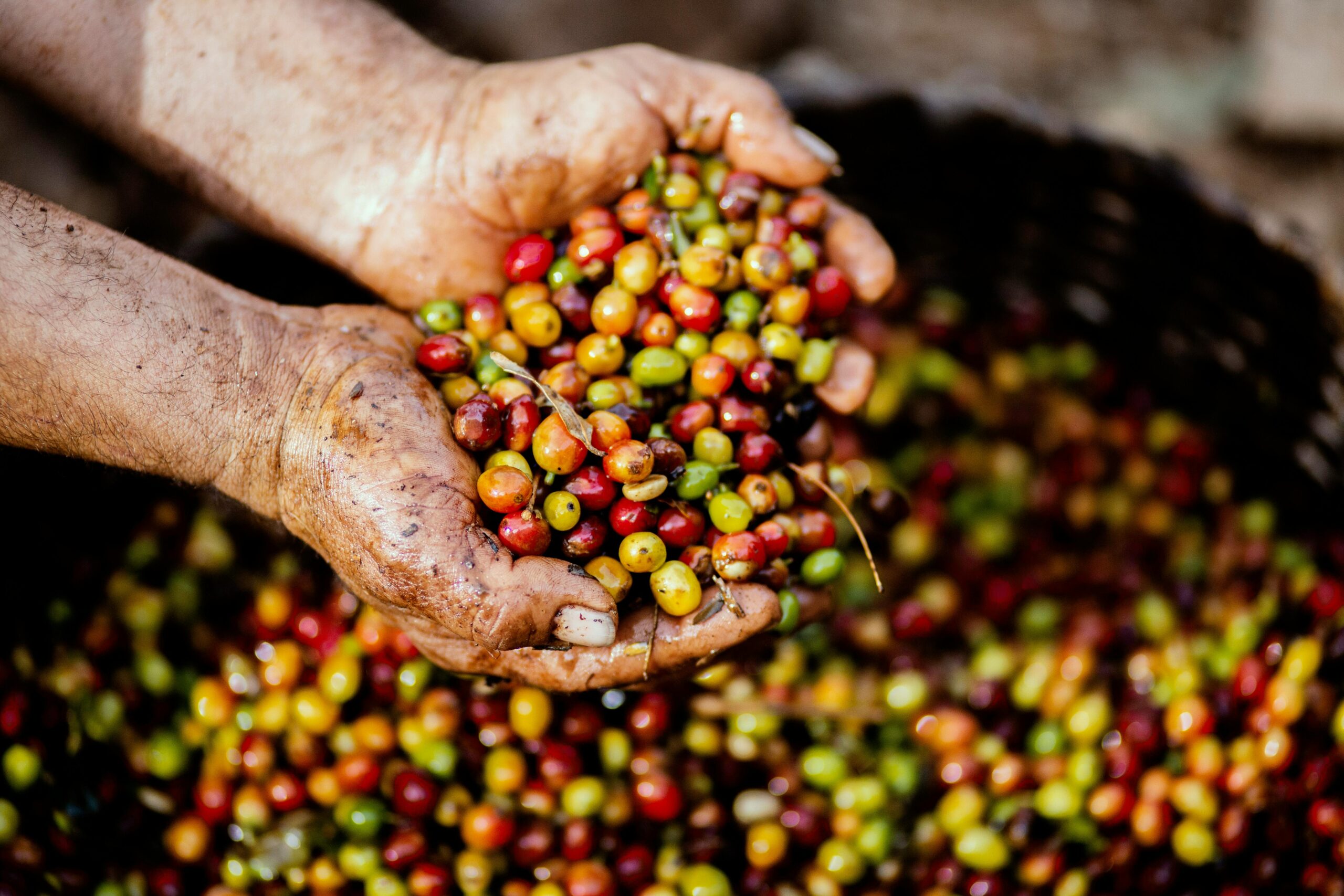As the global population continues to grow, so does the impact of our food choices on the environment and society. The demand for sustainable and ethical food options has never been higher, as more people recognize the need to reduce environmental degradation and ensure fair treatment of workers and animals in the food production process. This article explores what sustainable and ethical food choices are, why they matter, and how we can incorporate these practices into our daily lives.
1. What Are Sustainable and Ethical Food Choices?
Sustainable and ethical food choices refer to food consumption patterns that minimize harm to the environment, promote animal welfare, and support fair labor practices. These choices take into account the entire food production system, including how food is grown, harvested, processed, packaged, and distributed. They emphasize reducing the environmental footprint, protecting biodiversity, and ensuring that workers and animals are treated humanely.
Key principles of sustainable and ethical food choices include:
- Environmental sustainability: Minimizing resource use, reducing carbon emissions, protecting ecosystems, and conserving water and soil.
- Animal welfare: Ensuring animals are treated with dignity and respect, with access to natural behaviors, and not subjected to cruel practices.
- Social responsibility: Supporting fair labor practices, ensuring safe working conditions, and promoting equitable pay for farmers and food workers.
- Food security: Ensuring food availability for future generations and reducing food waste.
2. The Importance of Sustainable and Ethical Food Choices
A. Environmental Protection
One of the primary reasons to make sustainable food choices is to reduce the environmental impact of food production. Industrial agriculture is a leading cause of deforestation, greenhouse gas emissions, water pollution, and loss of biodiversity. For example:
- Livestock farming: Responsible for approximately 14.5% of global greenhouse gas emissions, mainly from methane produced by cattle.
- Monoculture farming: The practice of growing a single crop over large areas depletes soil nutrients, increases the need for chemical fertilizers, and contributes to biodiversity loss.
- Overfishing: Depletes fish populations and disrupts marine ecosystems.
By choosing sustainably produced food, such as organic produce, pasture-raised meat, and sustainably sourced seafood, consumers can reduce their ecological footprint and support farming practices that protect the environment.
B. Animal Welfare
Ethical food choices extend to the treatment of animals in the food production process. Industrial livestock farming, or factory farming, often subjects animals to cramped living conditions, limited access to the outdoors, and inhumane practices. Choosing animal products that come from farms with higher welfare standards, such as free-range eggs, grass-fed beef, or humane-certified poultry, ensures animals are treated with respect and allowed to live more naturally.
Organizations like Certified Humane, Animal Welfare Approved, and Fair Trade USA provide certifications that indicate higher standards of animal care and ethical farming practices.
C. Support for Fair Labor Practices
Many of the world’s food workers, particularly in developing countries, face poor working conditions, unfair wages, and exploitative labor practices. By supporting Fair Trade products, consumers can help ensure that farmers and workers receive fair compensation and work in safe environments. Fair Trade certification also helps smallholder farmers gain access to international markets and promote sustainable farming practices.
Fair Trade products include coffee, chocolate, bananas, tea, sugar, and other common grocery items.
D. Preserving Biodiversity and Food Security
Choosing sustainable food options also supports biodiversity, which is essential for the health of ecosystems. Industrial farming practices, such as monoculture and the heavy use of pesticides, can lead to the loss of plant and animal species. On the other hand, organic and regenerative farming practices encourage diversity in crops, promote soil health, and reduce the reliance on harmful chemicals.
In the long run, sustainable farming practices can also contribute to food security by preserving natural resources and ensuring that future generations have access to healthy and nutritious food.
3. How to Make Sustainable and Ethical Food Choices
There are several practical steps that individuals can take to make more sustainable and ethical food choices.
A. Choose Organic and Locally Sourced Foods
Buying organic foods reduces exposure to synthetic pesticides and fertilizers, which can be harmful to the environment and human health. Organic farming practices prioritize soil health, crop rotation, and the use of natural pest control methods, which benefit the ecosystem.
Additionally, purchasing locally sourced foods helps reduce the carbon footprint associated with long-distance transportation, supports local economies, and ensures fresher produce. Shopping at farmer’s markets, joining a local Community Supported Agriculture (CSA) program, or growing your own food are great ways to embrace local and organic produce.
B. Opt for Plant-Based Meals
Eating more plant-based meals is one of the most impactful ways to reduce your environmental footprint. Animal agriculture requires significantly more water, land, and energy compared to plant-based food production. A shift toward plant-based diets reduces the demand for resources and lowers greenhouse gas emissions.
You don’t need to become fully vegetarian or vegan to make a difference. Even reducing your meat and dairy intake by incorporating more vegetables, grains, legumes, and plant-based protein alternatives (like tofu or lentils) can have a positive environmental impact.
C. Support Sustainable Seafood
Overfishing is a major environmental issue, leading to the depletion of fish populations and the destruction of marine habitats. Choosing sustainably sourced seafood helps protect ocean ecosystems. Look for certifications like Marine Stewardship Council (MSC) and Aquaculture Stewardship Council (ASC), which indicate that seafood is harvested in a way that protects marine life and supports sustainable fishing practices.
Additionally, it’s important to avoid consuming endangered or overfished species and opt for fish lower on the food chain, such as sardines and anchovies, which are more sustainable choices.
D. Reduce Food Waste
One-third of all food produced globally is wasted, which contributes to unnecessary environmental harm. Reducing food waste is one of the simplest ways to make more sustainable food choices. Some strategies to reduce food waste include:
- Planning meals: Only buying what you need and using leftovers creatively.
- Composting: Recycling food scraps to reduce landfill waste.
- Proper storage: Storing food correctly to extend its shelf life.
E. Choose Fair Trade and Certified Products
Purchasing Fair Trade products ensures that farmers and workers are paid fairly for their labor and that ethical farming practices are followed. Look for Fair Trade labels on products such as coffee, chocolate, bananas, and tea. These labels indicate that the product has been produced in a way that promotes both social and environmental sustainability.
Other certifications to look for include:
- Rainforest Alliance: Focuses on protecting ecosystems, improving livelihoods, and ensuring the ethical treatment of workers.
- USDA Organic: Ensures that the product is grown without synthetic pesticides or fertilizers and promotes biodiversity.
- Certified Humane: Indicates that animals were raised under humane conditions.
4. The Challenges of Sustainable and Ethical Food Choices
While the benefits of sustainable and ethical food choices are clear, there are some challenges that consumers may face.
A. Higher Costs
Sustainably and ethically produced foods are often more expensive due to the higher costs associated with organic farming, fair labor practices, and certification processes. However, the long-term environmental and social benefits often outweigh the immediate costs, and some people find that reducing meat and processed food consumption can offset the price difference.
B. Limited Availability
In some areas, sustainably produced or ethically certified foods may be less accessible, particularly in low-income or remote regions. Access to organic produce, Fair Trade products, and locally sourced foods may be limited, making it challenging for some consumers to fully adopt these choices.
C. Misleading Labels
Not all food labels provide accurate information about sustainability or ethical practices. Consumers should be wary of “greenwashing”—when companies falsely advertise their products as environmentally friendly or ethical. It’s important to look for trustworthy certifications and research brands to ensure that they follow sustainable and ethical practices.
5. Conclusion
Sustainable and ethical food choices are an important step toward a healthier planet and a fairer food system. By choosing organic, locally sourced, Fair Trade, and sustainably harvested foods, we can reduce our environmental impact, support animal welfare, and promote fair labor practices.
While challenges such as higher costs and limited availability exist, small changes in our daily habits—such as reducing food waste, opting for plant-based meals, and supporting ethical brands—can make a significant difference. Conscious eating is not only beneficial for personal health but also for the health of the environment and society as a whole.

